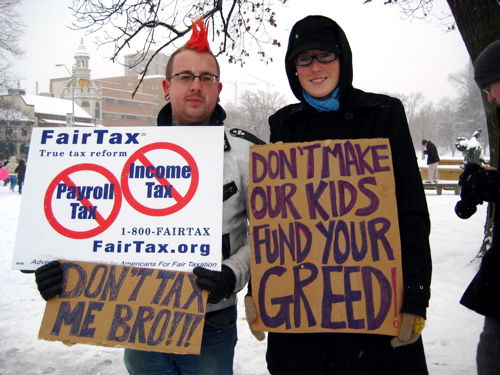This year will be our last Christmas, because the military programs that fund Santa Claus will be automatically cut in January 2013. That’s when the $1.2 trillion sequester of forced reductions in “defense and non-defense spending”—a weird epithet we have all agreed to use—will kick in as a result of the budget super committee’s failure to do dick about anything. Those spending cuts will coincide with the expiration of the Bush tax cuts to create a sort of economic compression pose known as the Fiscal Cliff. Ben Bernanke coined that expression. It’s his big accomplishment from last year. Meanwhile, businesses have delayed hiring and investment until they see what economic conditions will look like in 2013. The Republican and Democratic parties have agreed on two things this year. One, they will not talk about gun control no matter how many insane people shoot however many sane people. Two, going over the Fiscal Cliff would be bad. As we speak, Congress is working on a third agreement: to do nothing about it.
Tag Archives: approval rating
Stronger than reason: David Brooks on the Tea Party
He’s been wrong before, but when David Brooks says you’re a nationwide movement, you’re either Soccer Moms in the 2004 general election or a real thing. In Monday’s New York Times, Brooks alleges that the Tea Party movement is the latter. After opening with his usual overview of the prevailing sociopolitical winds for the last thirty to 100 years, he gets to the money shot. “Every single idea associated with the educated class has grown more unpopular over the past year,” he writes. For the moment, Brooks has declined to enumerate which instruments he uses to measure the popularity of ideas, but he at least sounds right. “The educated class believes in global warming, so public skepticism about global warming is on the rise,” he says. “The educated class supports abortion rights, so public opinion is shifting against them. The educated class supports gun control, so opposition to gun control is mounting.” Those committed to responsible argument will object to Brooks’s questionable use of the word so, which makes his theory the cause of his evidence, but as and statements his list still draws an unsettling connection. When Brooks points out that the Tea Partiers are defined by what they are against, and that most of what they are against can be grouped under “the concentrated power of the educated class,” he introduces a framework as useful as it is terrifying.


